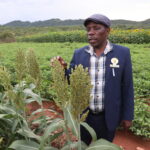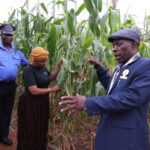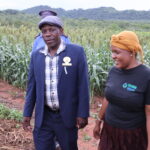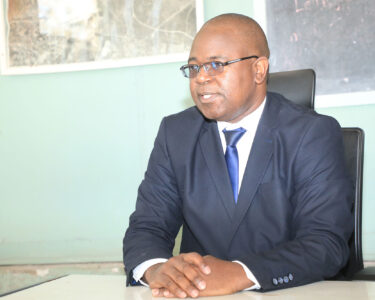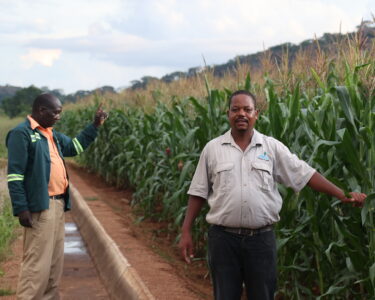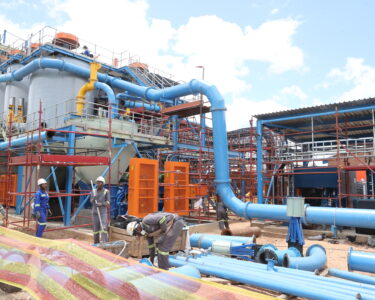Zimbabwe is breaking new ground in the agricultural sector. The country is forcing international organisations like the Food and Agriculture Organisation (FAO) to rethink its farming models. Put simply, Pfumvudza/Intwasa means a new season of increased productivity, but Zimbabwe has come up with a novel concept that FAO now defines as a crop production intensification approach under which farmers ensure the efficient use of resources like inputs and labour on a small piece of land in order to optimise its management.
Pfumvudza/Intwasa has gained currency under the Second Republic which is encouraging farmers to produce more on less land and with less resources. The government engaged traditional leaders to take the lead in ensuring that the concept is well-received across the country. As our reporter Elias Chakanyuka recently discovered, one of the traditional leaders who is preaching the Pfumvudza/Intwasa gospel is Chief Masunda from Zvishavane. Read on . . .
From a distance, Chief Masunda does not look like a chief at all. He is very easy-going and carries himself like an ordinary villager, but once you engage in conversation with him, you soon discover that you are talking to a traditional leader who is very deep in his reasoning.
Chief Masunda must be a keen disciple of American author John C. Mawell, who believes “a leader is one who knows the way, goes the way, and shows the way”. He is living proof that a true leader always leads by example, demonstrating to others how the work is done.
In an interview at his homestead after touring his maize, sunflower, groundnuts and sorghum fields, Chief Masunda said he believes actions speak louder than words. The lush crops on the perimeter of his homestead bear testimony to his progressive mindset.
“I planted one hectare each of maize, sunflowers, groundnuts and sorghum at my homestead because this is what the government is encouraging us as chiefs to do — leading by example — in our areas of jurisdiction. I am more of a doer than a talker. I believe in making people embrace new ideas through my own actions.
“Since Zvishavane is in Region Four, we are encouraged to focus on traditional grains that thrive on little rainfall. I am using these demo fields to demonstrate to my people that there is food security even in small grains. They will never starve.
“I meet my headmen once every month to discuss pertinent issues. My aim is to show them that what the government is saying is actually the best way to save their families from starvation. We don’t to continue relying on being spoonfed by NGOs that have a hidden agenda. The NGOs give us food that has GMOs [genetically modified organisms] that are detrimental to our health.
“As traditional leaders, we want our people to be self-sufficient at household level. If they embrace Pfumvudza, they will be food self-sufficient and will not have to rely on foreigners to feed them. Pfumvudza is the way to go because it conserves moisture. I was a beneficiary of inputs under the Presidential Inputs Scheme along with many other households under my jurisdiction.
“What you see here at my homestead are the demo fields. I actually have bigger plots where I am doing farming on a large scale. These one-hectare demo fields are there to show that under Pfumvudza one does not need a big field in order to reap good harvests. If you do intensive cultivation on a small field under Pfumvudza, you will still have a very good harvest,” emhasised Chief Masunda.
There have been reports countrywide of corrupt individuals abusing government schemes to enrich themselves. Has he come across such cases under his jurisdiction, and, if so, how he has handled them?
His response: “Yes, there are some headmen who were involved in corruption in the distribution of inputs. We are looking into the cases to ensure that those who abuse government programmes are brought to book. I am a no-nonsense chief when it comes to dealing with those abusing government programmes, and my people know it.”
Chief Masunda showered the Second Republic with praises for uplifting the status of chiefs, which he says has gone a long way in making their work much easier.
“Under the Second Republic, as chiefs we are being accorded lots of respect. Thanks to the Second Republic, Mimosa Mine built a new courtroom for me here at my homestead. Now when I am presiding over cases, my people are full of respect for me.
“More importantly, we are given inputs, motor vehicles and other perks. For example, water and electricity have been connected to our homesteads. This has gone a long way in boosting our status in the community.
“My only gripe is that the road from the main road leading to my homestead is now in a poor state. In addition, we would like government to drill more boreholes in other villages in Runde District. We also need more schools. The community at Mbundani is already building a makeshift school and we want government to chip in. Nevertheless, I want to thank President Mnangagwa for his continued support.
“President Mnangagwa is not only supporting us as chiefs. If you go everywhere, you will see that many roads are being rehabilitated. Just the roads on their own are enough to show you the Second Republic at work. Look at the mining and agricultural sectors. A lot is happening there, too,” said the chief.
Behind every successful man is a woman, the old adage goes. Chief Masunda is no exception. As Brick by Brick spoke to the chief, his wife was sitting close waiting for the slightest opportunity to be part of the conversation. And why not? Mrs Masunda is not your ordinary housewife; she is a woman with a passion for women empowerment.
Says Mai Masunda: “In late 2022, we went for a workshop hosted by [the First Lady] Mai Mnangagwa in Gweru. We received training in the manufacture of detergents so that we could teach our fellow women folk. I would like to see rural women starting their own income-generating projects, like soap making. Our only challenge is that the chemicals required for the manufacture of the detergents are on the expensive side. I am happy, though, that some women in Runde have started their own poultry projects.
“We also want to assist the elderly in the community. In this spirit, this year we are reviving and scaling up the Zunde Ramambo concept. All the chiefs and headmen were given additional inputs to ensure that we produce surpluses to feed the needy in times of drought.
“According to government, there should be a zunde [people working the fields in common purpose] at each village. As traditional leaders’ wives, we know our people as well as their needs. The NGOs’ era is over. It’s also time to put an end to food imports. Nyika yava kuvakwa nevene vayo,” she said with emphasis, echoing her husband’s leadership style.
If only Zimbabwe had more people-oriented leaders like Chief Masunda!



